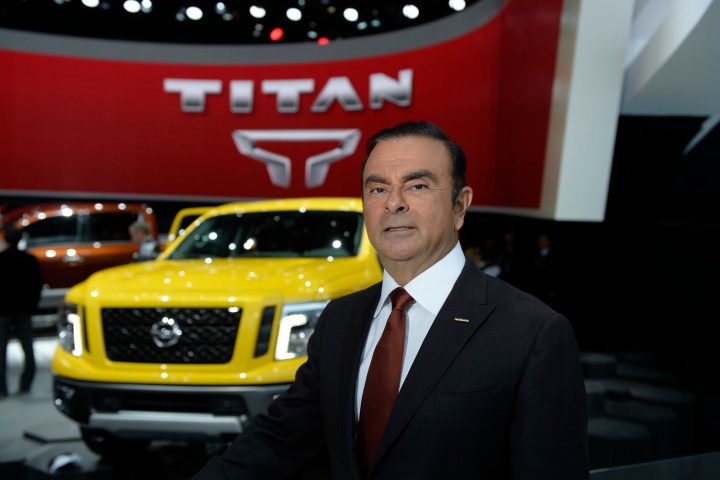
Nissan’s board of directors ousted chairman Carlos Ghosn after an internal investigation revealed he participated in several serious acts of financial misconduct. Ghosn — unquestionably one of the most influential executives in the automotive industry — was arrested on Monday, November 19, according to police sources in Japan, and formally dismissed on Thursday, November 22.
The Japanese firm posted a statement online that explains it began investigating Ghosn and Greg Kelly, one of its representative directors, when it received troubling information from a whistleblower several months ago. Investigators concluded Ghosn and Kelly intentionally underreported their respective salaries to the Tokyo Stock Exchange’s securities report to make it appear as though they earned less than they actually did.
Ghosn’s salary has been the central point of many controversies in recent years, both in Japan and abroad. The charges claim the $40 million he reported during an unspecified five-year period represented about half of what he actually made. “Falsifying the financial statement is categorically one of the most serious crimes in the Financial Instruments and Exchange Act,” pointed out deputy chief prosecutor Shinji Akimoto of the Tokyo district public prosecutors’ office.
The investigators also found evidence of “other significant acts of misconduct,” including Ghosn’s personal use of the company’s assets, and confirmed Kelly’s involvement. Ghosn notably purchased residences in Paris, Amsterdam, Beirut, and Rio de Janeiro for his personal use through a Nissan subsidiary, according to Japanese news outlet NHK. Newspaper Asahi adds one of Ghosn’s sisters received about $100,000 a year for an advisory position that served no purpose at all, and the executive used company funds to pay for family vacations.
Nissan declined to provide additional details about the charges. Japanese newspaper Yomiuri learned Ghosn and Kelly were both arrested and have been held in a Tokyo-area detention center since. Both face jail time if convicted.
Ghosn’s arrest will have far-reaching implications. As of his arrest, he was also the chairman and CEO of Paris-based automaker Renault, the chairman and CEO of the Renault-Nissan-Mitsubishi alliance (an industrial giant he created almost singlehandedly), and the chairman of Mitsubishi. With retirement in sight, he was beginning to hone his successors. The process should shift into high gear in the coming months.
He was also orchestrating a merger between Renault and Nissan which the latter’s top executives vehemently opposed. Some analysts speculate Ghosn was the victim of a coup to stop the merger, but the Japanese court handling the case has downplayed the allegations. “When a crime is suspected and there is evidence, we will carefully judge if it warrants an indictment. We won’t do that with an agenda in mind,” Akimoto affirmed.
Renault — which is 15-percent owned by the French government — was caught by surprise. It unsuccessfully asked Nissan to postpone Ghosn’s dismissal. The Paris-based firm has appointed an interim director to fill in for Ghosn, but it has not officially taken measures to fire him.
“Mr. Ghosn, temporarily incapacitated, remains chairman and chief executive officer,” it wrote in a statement. “The board decided to request Nissan … to provide all information in their possession arising from the internal investigations related to Mr. Ghosn,” it added. The statement seemingly suggests Nissan carried out the investigation on its own, and Renault didn’t learn about it until news of Ghosn’s arrest made headlines.
Update 11-22-2018: Added new information about Ghosn’s dismissal, alleged crimes, and Renault’s reaction.



